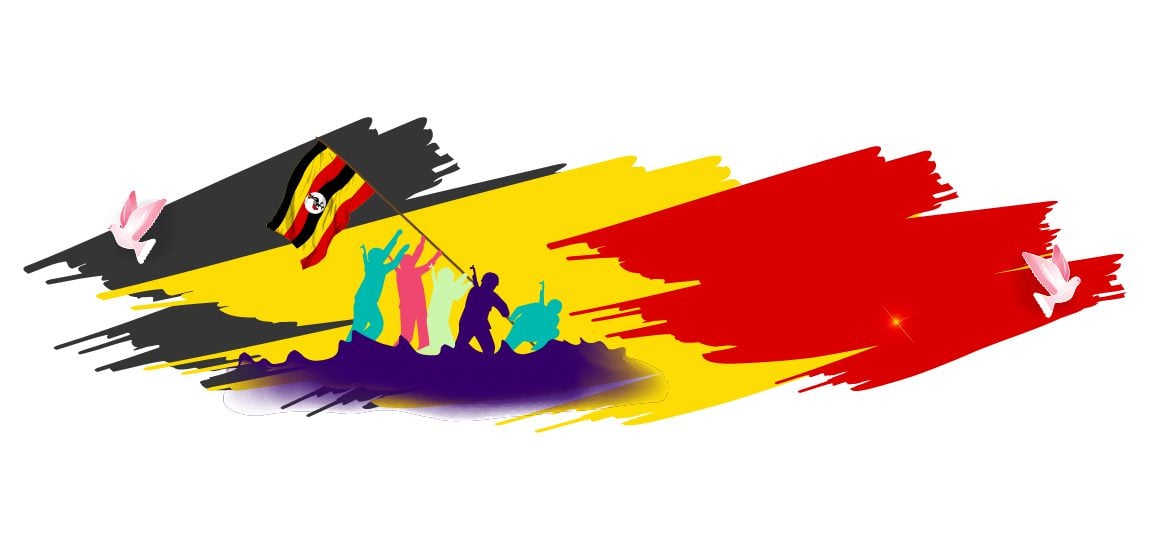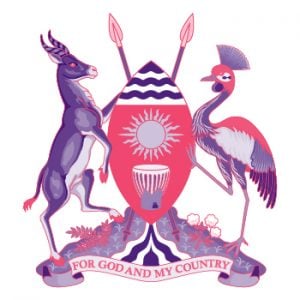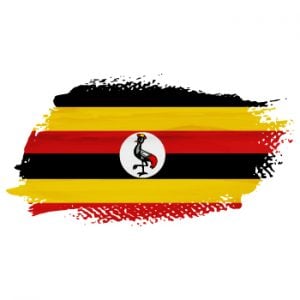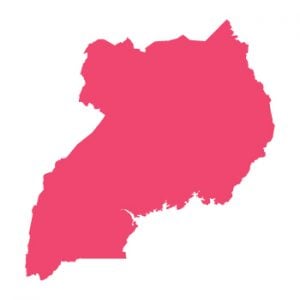
What is the Language of Uganda Africa?
Language of Uganda Africa
Have you ever heard of Uganda and its multilingual culture? Visiting Uganda for the first time and am curious if you’ll understand anyone? If these questions disturb you, don’t worry because you’re just at the right place to get your answers. Well, you may not be able to understand them fully but if you learn about the languages people speak in Uganda, the chances will be higher to comprehend them.
Uganda is a landlocked East-Central African country with a population of 35 million people. It is a multilingual country. The languages are numerous and diverse, adding up to as many as 43 living languages in total. These fall into four families including Bantu, Nilotic, and Central Sudanic with another two languages in the Kuliak family. Among these, 41 are indigenous and 2 are non-indigenous. Furthermore, 5 are institutional, 27 are developing, 7 are vigorous, 2 are in trouble, and 2 are dying.
What makes it easier to find common ground is the fact that none of the ethnic groups make up the majority of the country’s population. Having an official language makes communication easier at every step of the way; whether it is in government, education, or even healthcare.
East Africa, particularly in Uganda, is diverse, with many languages spoken. Yoweri Museveni, the long-serving president, has navigated the complex political landscape of this landlocked country. While English is a popular and common language among speakers of different major languages, historical figures like Idi Amin have impacted the nation’s political history. In Northern Uganda, the Lussese language adds to the linguistic richness, and landmarks such as Murchison Falls National Park showcase the cultural and natural diversity found in the languages of Uganda.
You’ll need proper guidance to understand these languages better. Certified Translations.com is solving this problem for you. Here is a comprehensive guide about the languages of Uganda Africa that exist now. So, let’s learn about them!


Some Facts About Uganda
Mgahinga Gorilla National Park, Mount Elgon National Park, and Rwenzori Mountains National Park contribute to the diverse natural beauty of Uganda in Central Africa, showcasing the country’s rich biodiversity. In Uganda, the central government plays a crucial role in overseeing public life, and the head of government addresses the needs and aspirations of the Ugandan people. Additionally, Queen Elizabeth National Park is a testament to Uganda’s commitment to preserving its unique ecosystems, highlighting the importance of these national parks in the collective identity and public life of the Ugandan people.
Makerere University, a renowned institution in Uganda, has played a pivotal role in academic and political spheres, navigating through historical events such as pre-independence elections. The international community, including foreign countries, closely observes Uganda, addressing issues like the controversial anti-gay law.
The country’s policies, such as Uganda Visa regulations, shape its image as a destination for various purposes. The government, through district woman representatives, addresses concerns related to real-world development and the impact on the treasury. International organizations like the International Fund for Agricultural Development and the Overseas Development Institute contribute to Uganda’s development efforts and global partnerships.
The Uganda Bureau of Statistics plays a crucial role in collecting and disseminating information, shedding light on various aspects of the country, including the socio-economic conditions of rural women. The bureau’s data on Uganda’s diverse landscapes, from the Rwenzori Mountains National Park to the Queen Elizabeth National Park, aids in understanding the environmental and ecological factors that impact the population. Additionally, political parties shape the governance structure, influencing some facts about Uganda’s political landscape and the dynamics that define the nation.
Representatives of people from the Bunyoro-Kitara Kingdom often engage with the central government of Uganda for various purposes, reflecting the kingdom’s cultural and historical significance within the country.
Culture Of Uganda
The culture of Uganda exhibits dialectic similarities rooted in its rich history, evident in the country’s educational institutions like Makerere University, which played a pivotal role during colonial rule and continues to contribute to the cultural fabric. Civil service, both historically and contemporarily, influences the nation’s development, with representatives of persons in positions of power, such as Yoweri Kaguta Museveni, the long-serving head of government.
In Uganda, language is a vital link between speakers, facilitating communication and fostering social cohesion within diverse communities. The country’s cultural fabric is woven with a rich tapestry of languages, reflecting its vibrant heritage and history. Despite the linguistic diversity, the central government plays a crucial role in promoting unity and understanding among Uganda’s people, recognizing the importance of linguistic diversity in preserving the nation’s cultural identity.
The movement of people within Uganda and across its borders has contributed to the exchange of languages and cultural practices. Rural women, in particular, play essential roles in preserving traditional languages and customs and passing down oral histories and cultural knowledge from generation to generation. Body language is also integral to communication in Ugandan culture, conveying meanings and emotions that transcend linguistic barriers.
Furthermore, Uganda’s interactions with foreign countries have influenced its cultural landscape, introducing new languages, ideas, and customs. From pre-independence elections to contemporary political dynamics, language has significantly shaped Uganda’s democratic processes and governance structures. Amidst these cultural currents, language continues to serve as a bridge between Uganda’s past and future, connecting communities and fostering a sense of shared identity in a dynamic and evolving society.
In the lush landscapes of Kidepo Valley National Park and Lake Mburo National Park, the body language of mountain gorillas and the unique flora and fauna underscore Uganda’s special status as a country with diverse ecosystems. The Nile River and Nile Valley further add to Uganda’s cultural significance. At the same time, the Bank of Uganda and Oxford University Press contribute to the country’s economic and educational growth in nominal terms. Uganda’s Visa policies reflect its openness to Power Africa initiatives, showcasing a dynamic culture that intertwines tradition, education, and governance for the benefit of the Republic of Uganda.
What is the language of Uganda, Africa?
Among the numerous lingoes in this African country, English and Swahili are the two main official languages. English dominated as the only official language for the longest time, while Luganda and Swahili competed for second place. Luganda and Swahili are languages of inter-ethnic communication. English dominates all formal communications in education, the judiciary, politics, and government.
To learn about the national languages of Uganda, you need to learn each in detail. As an expert in providing language assistance services, Certified Translations.com will be helping you entirely whether it is about your native language or foreign.
Although there are 41 languages, only three are involved in the debates: Luganda, Swahili, and English. All three are controversial and present an interesting starting point for a debate around Uganda’s language policy choices. Ultimately, we believe it makes sense for more than three languages to reach the national language status.
This would hardly be an unprecedented model on the continent. South Africa has 11 official languages, and Zimbabwe has 15. For students, English became the only language of instruction until the last year of their graduation. Let’s study these three tongues separately!
English Language
English became a part of this country in East Africa through missionary work and education after becoming a British colony in 1894. By the time Uganda became independent in 1962, English was so common that it remained the country’s official language. You’ll be surprised that Ugandans can pronounce English words more accurately than a native speaker could.
English remains the major medium of instruction despite introducing a local language policy in primary schools. All in all, Ugandans consider English to be the way to success and a better life.
In 1971, only 21% of the community could speak English, but this ratio increased when English became compulsory in schools. In 2002, the country’s literacy rate for people aged between 15 and 24 increased to 76.2%. The education system was reviewed in 2004. Language specialists suggested including mother-tongue education in the earlier years of the curriculum.
The benefits were tremendous. There is no recent census to determine the range of English-speaking people. But we have an idea that the percentage is much greater now. Young learners in Uganda mostly speak in their native languages, so it’s unreasonable to expect them to grasp English as soon as they start their classes.
Swahili Language
Swahili is the most widely spoken language in Africa; various ethnic groups often use it to communicate with one another. In Uganda, much of the country is influenced by Lake Victoria, one of the world’s biggest lakes with many islands. During the regime of Idi Amin Dada (1971 to 1979), Swahili became Uganda’s national language.
After the dictator’s administration ended, English was again elevated to official status. The importance of this lingo can be determined from the fact that Swahili is also written on the currency notes along with English. Uganda has countless attractions, including its diverse bird and animal life.


In 2005, Swahili gained the status of official language. This official status of Swahili is more symbolic than functional, mainly because of Uganda’s association with the regional intergovernmental body of the East African community. Sometimes, this lingo is the medium of instruction in primary and secondary schools. It is also a foreign language but people wonder ‘why they should choose a foreign language?’.
The reason is that if any of the other many native languages are above all others, it could cause contention between the tribes. Therefore, Swahili serves as a neutral language that unites the people of Uganda.
Luganda Language
Luganda is the most controversial indigenous tongue and another most widely spoken second language. Although the central region became hostile towards Swahili, the Northern region has a completely different status and image. If you want to study an African language, it is important to pick the one with millions of native speakers. Luganda, as a Bantu language, has eight million speakers.
The native speakers of Luganda are the Buganda, which constitute 18% of the total population. Buganda belongs to Uganda’s subnational kingdom of Buganda and is both numerically and geographically the primary ethnic group of the capital city of Uganda, Kampala. Are you looking for an African Language Translation?
Djibouti City, situated in the Horn of Africa, serves as a key hub facilitating the movement of people and fostering connections with countries like Uganda. In the Nile Valley, the instruction in schools and Learn Luganda Language initiatives contribute to cultural exchange. At the same time, the civil service, managed by civil servants, plays a vital role in rural women’s empowerment.
Through political power vested in political parties, the central government collaborates with institutions like the Uganda Communications Commission, ensuring that Uganda News reflects the diverse perspectives on the Luganda language and its cultural significance in Central Africa. Visa policies further facilitate the interchange of ideas, making Uganda a welcoming country for education, diplomacy, and cultural exchange.
It is the indigenous language and the first African language to document the country’s indigenous history through translations of the Bible, evangelical, and catechism literature.
Its use has spread to other parts of the country, mainly in the urban centers where it is used in business, transport, church, and media and as the medium of inter-ethnic communication. It later developed into a language for literacy and education and then became the language of the church. Luganda is not the official language in education and administration but it still has a lot of importance. Recent studies also indicate a preference by locals to use Luganda over their local languages in education because parents believe that it opens doors to urban life.
Which one is most popular?
Among these three national languages, due to the diverse number of English speakers, it is the most popular lingo in different regions. Just like 90 percent of all rural women working in the agricultural sector gives rise to the Ugandans, English also has increasing importance. In Uganda, most agricultural production is concentrated in the Southern regions, where climatic conditions support the densest rural populations in the nation.
Aristocrats and government staff used this language back them, associating it with high class and good education. Briefly, in Uganda’s language policy, English first gained so much glory and prestige in the country because of colonization.
We hope that by now, you’re properly aware of the languages people speak in East Africa and this guide has been helpful for you!



Sorry, the comment form is closed at this time.